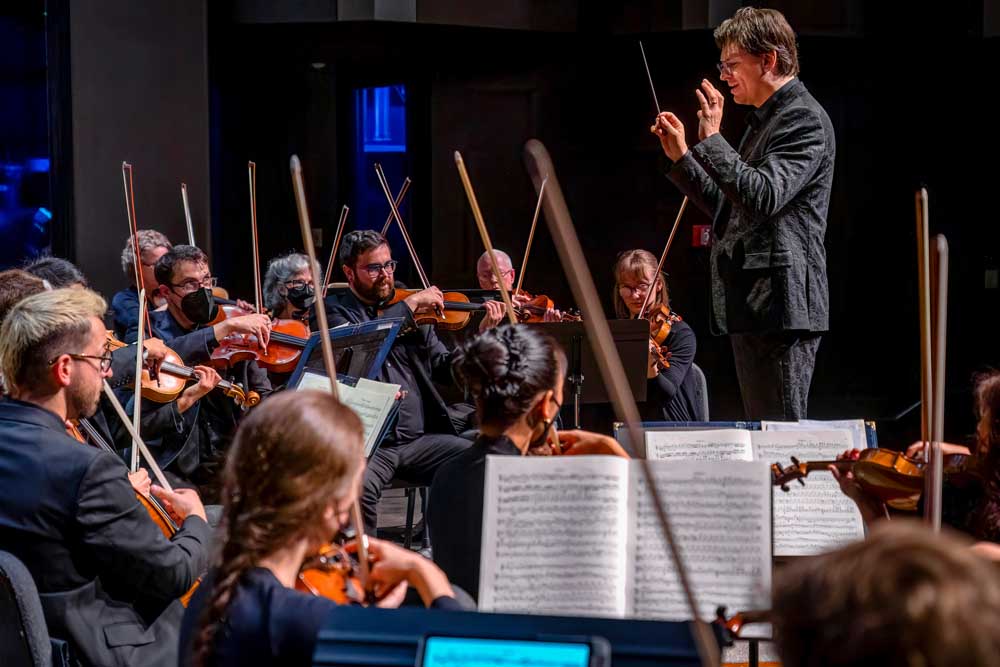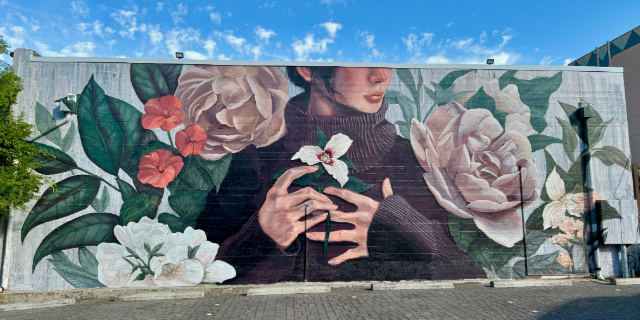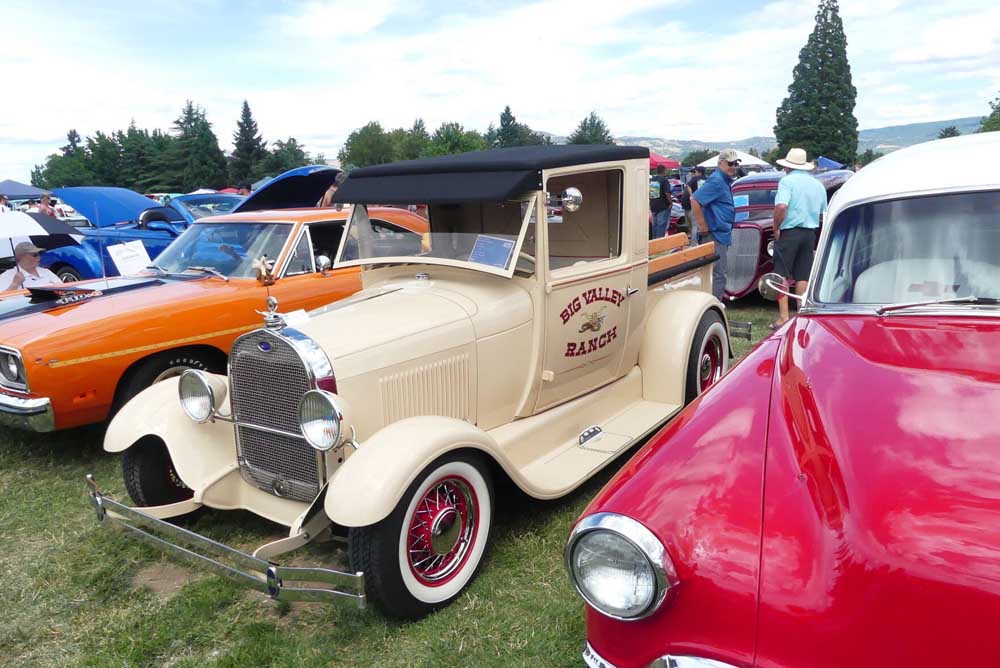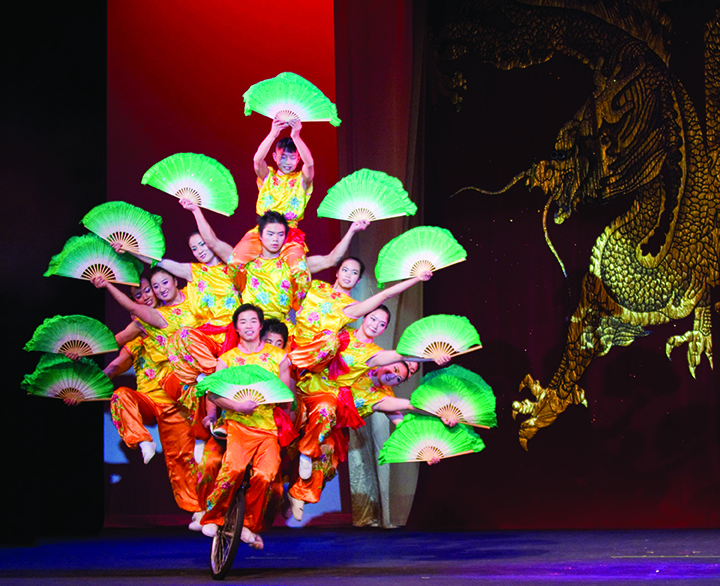The Sound: Rogue Valley Symphony welcomes first composer in residence
Published 12:00 am Tuesday, April 18, 2023

- Martin Majkut, Rogue Valley Symphony Music Director.
The Rogue Valley Symphony is preparing to welcome its first composer in residence for the 2023-24 season.
Martin Majkut, music director for the symphony, has spent years dreaming of creating the program. Once the idea finally started to gain momentum, he said, the pandemic intervened. Now that the program is becoming a reality, he was elated to say his first-choice composer — David Ludwig — said yes.
“I had to wait three years, but I’ve kept my eye on the ball. This will help to spread the love for our art form and for music in general. Having an artist of David’s caliber here is a huge feather in our cap at the symphony, but it also enriches the entire valley to have such a great musical communicator,” he said.
Ludwig has received a multitude of awards and honors throughout his career. He is currently the dean of music at the Juilliard School of Music in New York City. This year, he was chosen by the American Academy of Arts and Letters for its annual award in music.
Last year, he was awarded the Stoeger Prize by the Chamber Music Society of the Lincoln Center. In 2021, he was named a Steinway Artist by Steinway & Sons; and in 2013, NPR named him one of “Top 100 composers under the age of 40.” Ludwig has also been awarded residencies and fellowships at arts organizations and universities around the world over the last decade, according to the composer’s website.
Looking to his upcoming residency in Oregon, far from his home in New York, he remembered a previous visit. “As the kids say, I love the vibe,” he said in a telephone interview.
Ludwig says he’s looking forward to the openness and sense of community he remembered from his visit.
For the work of the residency itself, he is especially interested in the opportunity to make new converts.
“It’s an important opportunity for the audience to see this as a living art form. For orchestras, the business is always kind of expanding — always looking at new ways to engage their audiences and for audiences to connect with a composer,” he said.
He wants to counter the enduring notions that classical music is stuffy or boring, or that it’s closed off to only those who are willing to wear a tuxedo, or that anyone attending the symphony should be expected to walk through the doors listing every historical composer off the top of their heads.
“People are afraid to go into a concert where they don’t know everything. But the more you go in without any expectations, the better,” he said.
He hopes his time in the valley will be an opportunity to introduce new audiences to the symphony as he sees it.
“Classical music concerts are actually less expensive than almost anything else you could go and see. Classical music is really focused on casting as wide a net as possible, to try to bring people in to take a chance — to help them see that this music is meant to engage us, to provoke us, to get us to think and to feel. We have 1,000 years of music giving us that,” he said.
Ludwig’s own music flits along a line between an informed conversation with tradition and a voyage into something new.
“Ultimately what I’m aiming for with my work is to tell stories. There are composers who write very abstractly, kind of music about music. Sometimes I envy that, but what I’ve learned about myself is the most important thing to me is to convey a story or a message,” he said.
For his composition “Pale Blue Dot,” Ludwig said the music began with the story of NASA’s Voyager I and a quote from Carl Sagan. “Pale blue dot” was Sagan’s term for Earth as seen by Voyager, he said. It was Sagan, he said, who convinced NASA to turn Voyager around and take a snapshot of Earth.
“I was kind of exploring what it might be like to be Voyager, the loneliness of space. From where it was, they say it’s 80,000 years until you hit the next star. But what it might be like if aliens found Voyager, and what would happen at that moment of discovery,” he said.
The piece “Pale Blue Dot” reflects the Voyager’s mission with strong, unusual percussion and string instruments built into anticipatory, eerie and exultant sounds.
The act of composition itself is not so much like the alchemy it is often imagined to be.
“Really the voice that plays music to us is the same voice that speaks to us when we read. We build a soundscape. We’re building on all the sounds around us. The most important tool an artist can have is openness and the willingness to listen. Ultimately what I’m most interested in is what we all have in common and how we can speak to each other,” he said.
More than anything, he said he was grateful for the collaborative effort of a symphony.
“Being a composer is a lot like being a playwright, we’re dependent on other people to play our music for us. I feel gratitude toward people like Martin, making music possible,” he said.
For the composer in residence program, Ludwig will make at least three visits to the valley. During that time, he will conduct his work at not only the symphony but at shows in schools and other venues like retirement homes. He will work with young composers and students to help them “find their voice, or refine the voice they already have,” he said.
Ludwig will be conducting his original compositions at three of six Masterworks concerts at the Rogue Valley Symphony this spring.
For Masterworks 1, he will conduct “Pangæa”, to be performed by the pianist Ludwig wrote the music for — Anne-Marie Mcdermott.
During the Masterworks 3 concert, Ludwig will conduct his composition “Saturn Bells” featuring his wife, award-winning violinist Bella Hristova; and Masterworks 6 will feature Ludwig’s composition “Fanfare for Sam.”
For the complete schedule of performances and tickets — available in May — see rvsymphony.org/2023-2024-season.






